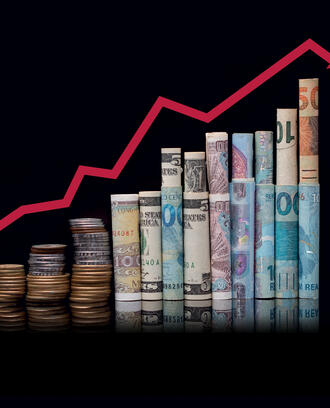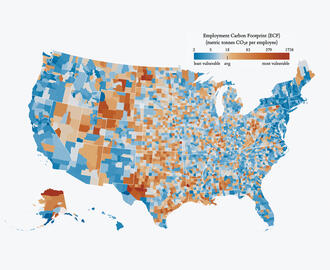Ideas Made to Matter
Economy
Thomas Friedman isn’t having Donald Trump’s anti-globalism
By
Thomas L. Friedman, the New York Times’ Pulitzer Prize-winning foreign affairs columnist, has written extensively about the economic benefits of globalization, most notably in his 1999 book, “The Lexus and the Olive Tree.”
Perhaps not surprisingly, Friedman finds himself at odds with President Donald Trump, who despite announcing on Monday a new North American trade agreement, has spent his term denouncing the “ideology of globalism” and bashing international trade agreements as threats to America.
In a recent appearance on the “Mind and Machines” podcast, Friedman talked with MIT Sloan’s Andrew McAfee, the co-director of the MIT Initiative on the Digital Economy, about why the Trump presidency doesn’t embody the American optimism, energy, and idealism that “makes the world go round.”
The pair also discussed the danger of de-legitimizing the media by calling it “fake news,” the threat economic interdependence poses, and the perils of isolationism.On the real problem of fake news
In 1995, Friedman became the Times’ foreign affairs columnist, following a 14-year run as a reporter with the paper. The veteran journalist called Trump’s daily assaults on the media a “huge problem.”
“We've never had a president using the bully pulpit to de-legitimize mainstream media at the speed, scope, and scale of this president,” Friedman said.
The only way to fight fake news, he said, “is by making those serious, honest, credible news organizations financially viable.” He takes comfort from the 3 million online subscribers the Times has added since Trump was elected.
On the two new forces shaping our world
In “The Lexus and the Olive Tree,” Friedman argued that the post-World War II world order would be defined by the tension between the forces of globalization and technology and national identity. He told McAfee that, if he were to update the book, he’d add climate change as a force affecting the future.
Since then, the world also has become increasingly economically interdependent — another huge change. Greece, a friend, can damage the U.S. economy with the collapse of its banks, Friedman said. And the U.S. is in the once unthinkable position of rooting for China’s economy to succeed. The economic failure of a rival like China can do immense harm to the U.S., he said.
On Trump’s underlying message to other nations
As countries become more interdependent, the U.S. is withdrawing from the international stage — and that is dangerous, Friedman said.
“When we go dark, when we go selfish, it affects the whole world,” he said.
What’s more, the Trump administration’s undermining of its own agencies sends a troubling message to other nations.
“Nothing drives me more crazy than to hear my president trashed the FBI, the Justice Department,” Friedman said. “Do you know what a Russian would give for one day of our Justice Department? What someone living in Somalia would give for one day of our FBI, what someone in China would give for one day of our CDC? These are great institutions and we are a model for the world.”
America’s diversity is a strength, Friedman said. He’s proud of an August 2017 column criticizing the president for failing to condemn white supremacists who marched in Charlottesville, Virginia, which he wrote while traveling in Qatar with a multi-ethnic U.S. Air Force contingency.



